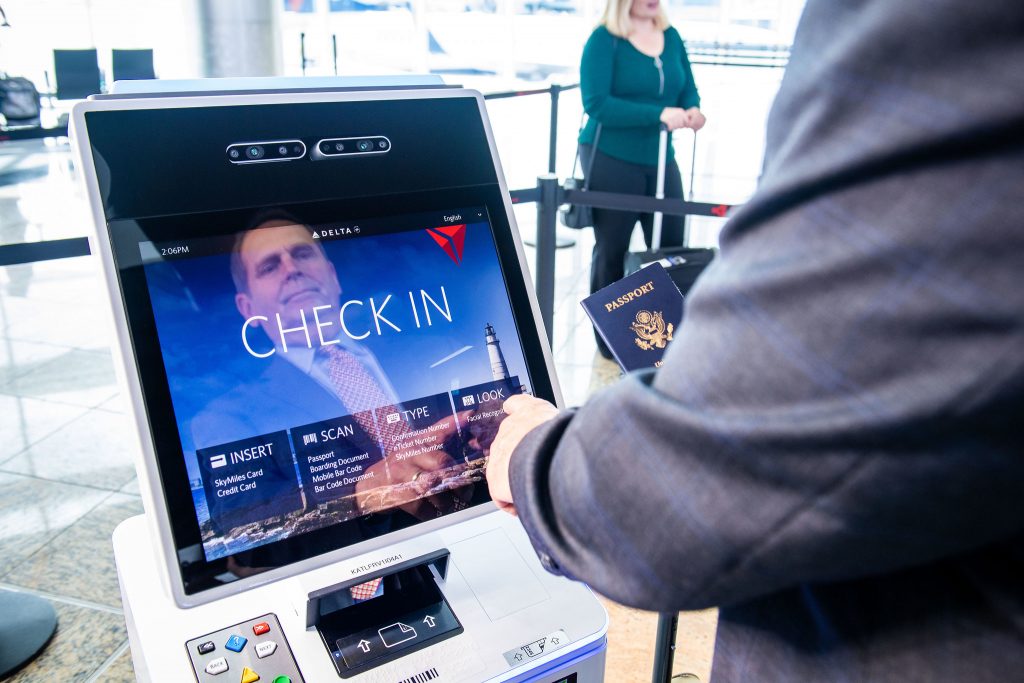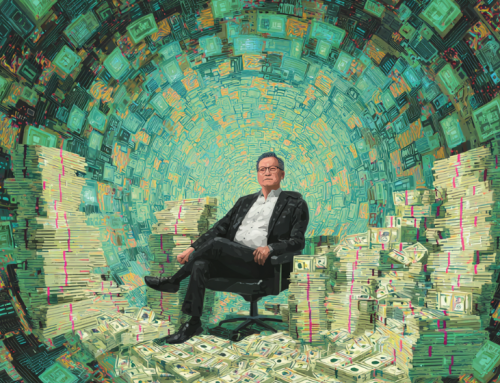
Delta Air Lines reveals its new biometric face-detection technology at Hartsfield-Jackson International Airport in Atlanta, Ga. on Wednesday, October 17, 2018. (Photo by Chris Rank, Rank Studios 2018)
Chinese, U.S. Citizens Object to Facial Recogition Invasion of Privacy
According to a story in The Economist, Chinese citizens have begun a backlash against invasion of privacy through technology, starting with a social media site called ZAO. Once so popular users crashed its servers, the app plummeted in popularity because of a clause that granted it users’ content in perpetuity.
The service deleted the clause, but the series of events shows the unpopularity of privacy invasions, which are now being seen as even more dangerous in terms of government use. In Hong Kong, for instance, protesters use bandanas and masks to hide their faces from the ever-present security cameras blanketing the city.
ZAO is an example of an app that also invades privacy by creating deepfakes, on which it could put a user’s face on someone else’s body. People were outraged when they figured that out.
Already, the Chinese government uses facial recognition to spy on millions of Muslims in northwest China, in part because of reports of race- and gender-related software mistakes, and in part just because the face is a vital part of a person’s public identity.
In addition, Chinese citizens worry about online fraud, which is as much of a problem there as in the United States.
“More than four-fifths of respondents to a survey last year by the China Consumers’ Association said they had suffered from data theft. In an unusual case in May, a man from Jiangxi province sued Tencent, the internet giant behind WeChat, for sharing his personal data across its many services without his approval,” the story in The Economist said.
Chinese citizens are among many worldwide coming to the same realization: if their governments don’t protect them, they have to speak out. For instance, San Francisco banned the use of facial recognition by police, followed by Oakland, CA and Somerville, MA. Now Portland, OR is considering a ban because of accuracy problems in the technology.
The Financial Times reported on how U.S. government databases are using facial images of its citizens to train AI without their consent. Many of the images are taken from social media. Jillian York, a 36-year-old American activist objected to the invasion of privacy. She is one of 3,500 people in the database.
“What struck me immediately was the range of times they cover,” York says. “The first images were from 2008, all the way through to 2015.” Two of the photos, by a photographer friend, had been scraped from Google. “They were taken at closed meetings. They were definitely private in the sense that it was me goofing around with friends, rather than me on stage,” she adds.
Another half-dozen photos had been clipped from YouTube videos of York speaking at events, on topics including freedom of expression, digital privacy and security. “It troubles me that someone was watching videos of me and clipping stills for this purpose,” she says.
Most recently, Amazon CEO Jeff Bezos admitted that there needs to be regulation of online facial recognition and that his company is working on drafting policies.
“Good regulation in this arena would be very welcome I think by all the players,” Bezos said. “It makes a lot of sense for there to be some standards in how this all works, and that kind of stability would be probably healthy for the whole industry. It’s a perfect example of where regulation is needed…It’s a perfect example of something of that has really positive uses, so you don’t want to put the brakes on it. At the same time there’s lots of potential for abuses of that technology, so you do want regulation.”







Leave A Comment